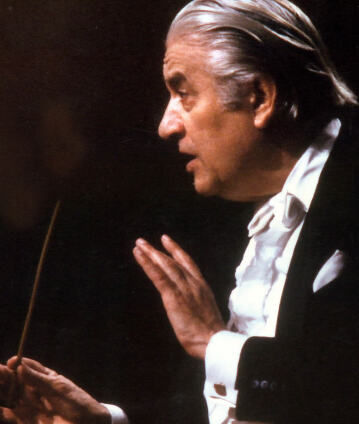Sergiu Celibidache
conductor
In the postwar period, the Berliner Philharmoniker were temporarily without an active chief conductor because Wilhelm Furtwängler had to undergo the process of denazification. To the highly talented graduate Sergiu Celibidache, who had next to no experience as the head of a professional orchestra, this situation offered the unlikely opportunity to become the defining conductor of the world-class ensemble for some years.
The musician, who was born in Romania, conducted more than 400 concerts in Berlin and on guest tours until 1954. While only one work of Celibidache’s later central composer, Anton Bruckner, was performed, the conductor made the orchestra particularly familiar with music from France and Russia, repertoire they had previously neglected. Although conflict had emerged in the course of their work together, it was the death of Furtwängler and the election of Herbert von Karajan as his successor that finally led to his break with the orchestra. Deeply aggrieved by not being appointed, Celibidache returned only one last time 38 years later to give acclaimed performances of Bruckner’s Seventh Symphony. By then, the quick-tempered young conductor had become the philosopher among the maestri, attracting both cult-like worship and strong criticism. Restless years spent moving around passed after his separation from the Philharmoniker. Following positions in Italy, Scandinavia and the Radio-Sinfonieorchester in Stuttgart, “Celi”, as he was known in his later years, ultimately became general music director of the Munich Philharmonic. This era, which ended only with the musician’s death in 1996, saw benchmark performances of the Classical-Romantic repertoire and early Modernism. Celibidache was famous for uncompromising rehearsal work, sustained tempos which allowed all the richness of the music to unfold, for his rejection of sound recordings, and not least for his candid interaction with colleagues. At the same time, he was one of the most impressive figures of the music world in the 20th century.